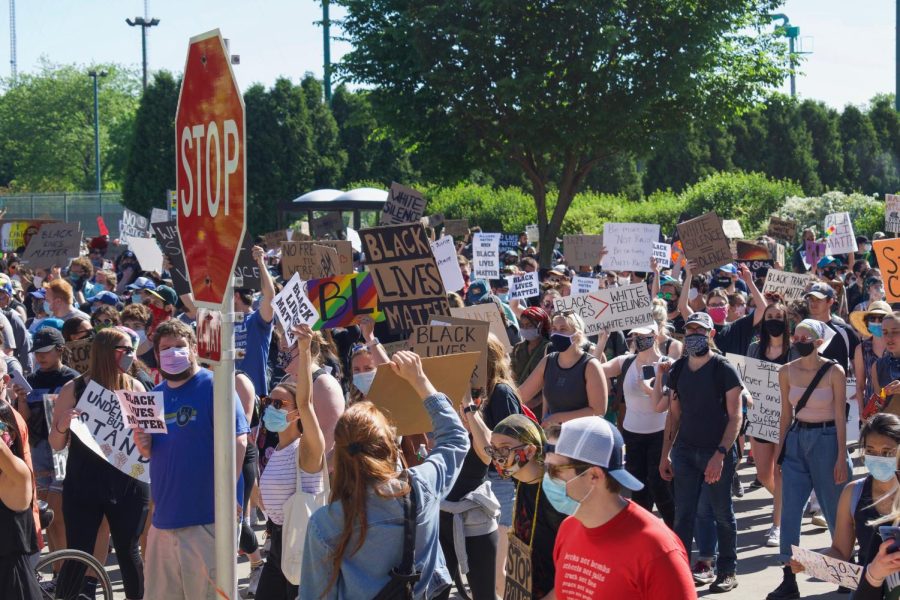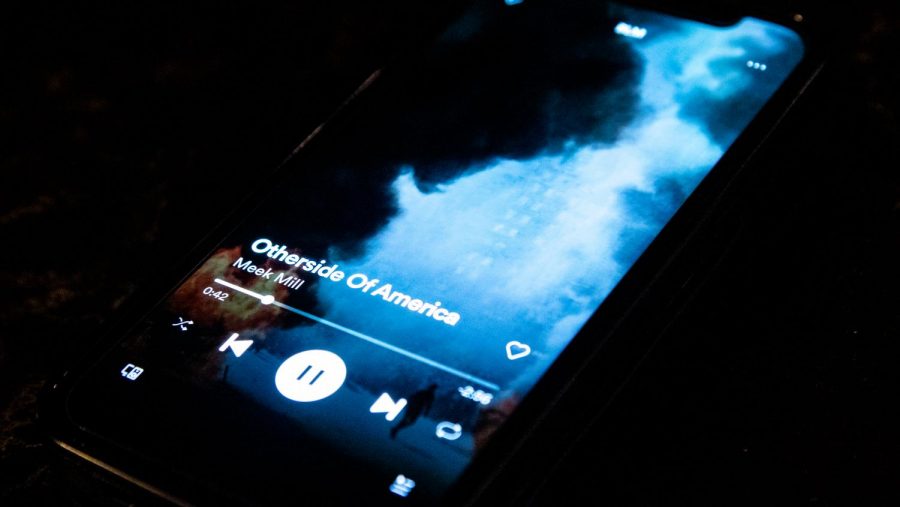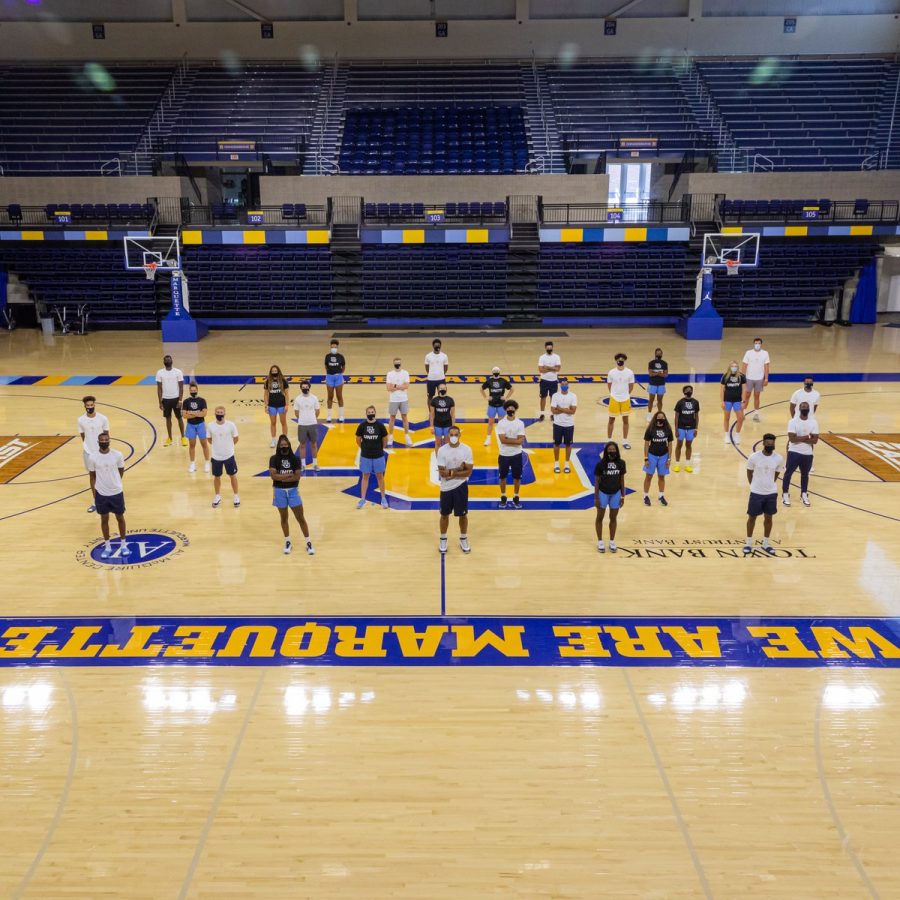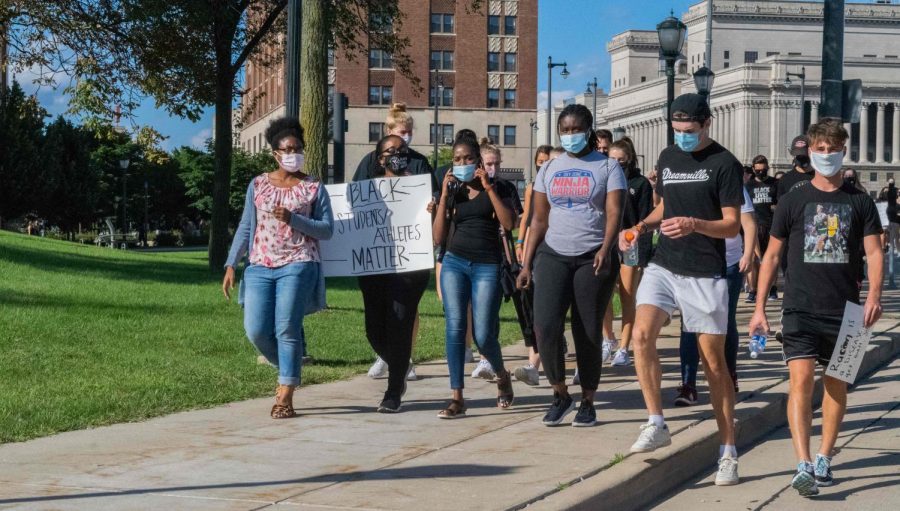Stephanie Rivera Berruz, an assistant professor of philosophy, wrote an open letter to Marquette University to address racial injustices in the Marquette community June 17.
The same day, Rivera Berruz spoke at a Marquette virtual town hall to address racial injustice, where she read the open letter out loud. The letter was also shared across various social media platforms, such as Instagram, Twitter and Facebook.
The letter calls on the university to provide further support for communities of color and show that social justice is racial justice.
Rivera Berruz says she became inclined to write the letter because she was feeling angry and disappointed by what she had been seeing from the administration in the past few months and in her time at Marquette along with the recent protests supporting the Black Lives Matter movement.
“Remind yourselves that the history of your social justice mission can do more than generate profit,” the letter reads. “Do better, a conversation is not sufficient, a town hall is not sufficient, implicit bias training is not sufficient, a dialogue is not sufficient, symbolic gestures are not sufficient, personal narrative is not sufficient, a statement will not be sufficient, more committees and commissions will not be sufficient, we need collective action.”
Rivera Berruz provides some necessary changes for Marquette to make in order to fulfill these goals in the letter. She says Marquette needs a curriculum that focuses on anti-racist struggles on a global scale and needs to prioritize further funding of offices such as the Office of Diversity and Inclusion, Center for Engagement and Inclusion, Center for Urban Research, Teaching and Outreach, Center for Peacemaking and the LGBTQ+ Resource Center, among others.
“Do not tell me there are no resources, because our campus, our buildings, our administrative salaries me a different story,” the letter reads. “Rather, tell me how you are going to re-funnel those resources with a mission to actually serve our student body as an institution of higher education.”
Rivera Berruz says that the adjusted curriculum is not one size fits all, but concerns how education is oriented.
Last fall, the university combined numerous offices under the Center of Engagement and Inclusion, and she says that that absorption made it obvious the university was not prioritizing the offices and was not giving the staff and faculty involved with those offices enough resources.
She also addresses issues of underrepresentation at the university and says Marquette needs to take action to change this in the letter.
According to the letter, Marquette has 8,515 students, and 2,383 are students of color. Of those students, 333 are Black, comprising 3.9% of the entire student population. There are 715 full-time faculty at Marquette, of which 130 are people of color and 31 are Black.
“This means that students can make it through their college education and never cross paths with faculty of color, and those that do, gravitate to (faculty of color) for support every single time the university fails them, and it fails them far too often,” the letter reads.
She says that Marquette needs to have more faculty and staff of color across racial, ethnic and gendered lines.
“Our faculty should reflect the place we live and the students we vow to serve,” the letter reads. “Where is the racial diversity of Milwaukee represented in your faculty?”
Rivera Berruz also says Marquette needs more resources to prepare students of color for success, and also needs a redefinition of community engagement.
She says that the university uses its status as a Jesuit institution to promote service but can also promote an idea that Marquette is in a “savior” role.
Instead of giving resources to communities Marquette intends to serve, they extract resources through community service, ultimately benefiting students instead of the communities, she says.
She says a large issue in the way Marquette engages with the community is the lack of communication with the community. She says Marquette should ask what the community wants from them.
“The conversation needs to start from the bottom up, not top down,” Rivera Berruz says.
She also calls for white faculty and Jesuits to show their support in the letter.
“We are outnumbered, we are screaming, what are you doing to turn up for your students of color who are screaming and hoping for a world where professors do not, as they report, ‘use the n-word in class’?” the letter reads.
The letter says the university needs a reorientation of what it means to serve a Hispanic community that centers on poly-ethnic experiences and the struggles of undocumented students.
She also says in the letter that knowledge should not be a privilege of the few.
Following these changes, Rivera Berruz says that she should not have to tell the university what needs to be done.
“The resources are there, the question is whether the university as a collective can reckon with its active practices that continue to ensure that the student body, faculty, and staff at Marquette (do) not reflect the city that it has settled,” the letter reads.
Rivera Berruz closes with a statement concerning Marquette’s ideal of “being the difference.”
“I am still left wondering, from a university that profits from a marketing campaign of social justice and difference what that difference really looks like because in this moment it really sounds like a prayer aligned with white supremacy,” the letter reads.”I hope I am wrong.”
Rivera Berruz says she has gotten an outpour of support following the letter, but she is sure there are people who are upset or disturbed. She says time will tell with what happens with the letter.
Madeline Sporina, a junior in the College of Health Sciences, was shown the letter from a friend and felt very connected because Rivera Berruz was her philosophy professor.
Sporina posted the letter on her Snapchat and Instagram stories because she felt the message was important. She says some people responded and said Rivera Berruz was an inspiration to them and that they wanted to share the letter as well.
Rivera Berruz says that she received emails from both University President Michael Lovell and Provost Kimo Ah Yun thanking her for her words.
“The entire university community benefits from the open letter written by Dr. Rivera Berruz, which she also had the opportunity to read during a recent virtual town hall event on racism and racial injustice,” university spokesperson Chris Stolarski says in an emailed statement. “That Marquette has faculty, students and staff alike who are passionate about and willing to fight for issues of justice, equity and humanity that shape us as a university community and as a society only serves to strengthen the Catholic, Jesuit mission that remains our bedrock. The university can only begin to change and heal when its community members lay bare the problems we face.”
Stolarski says the university is committed to three imperatives: an institutional support for advocacy on racial justice, the production of knowledge that is inclusive of new ideas, and the transformation of the Marquette community toward a more diverse population.
A President’s Commission on Racial Equity, a group assigned a task by the President, was announced at the Racial Injustice Town Hall. It has begun meeting to form a plan regarding these imperatives, Stolarski says.
Stolarski also says there are initiatives underway that will be completed soon, including the search for a Black counselor for the counseling center and a diversity hiring toolkit for search committees, among some other initiatives.
This story was written by Annie Mattea. She can be reached at [email protected].







